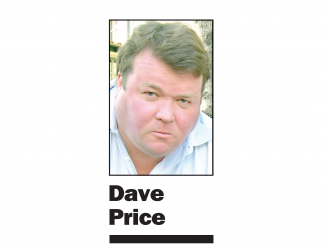
BY EMILY MIBACH
Daily Post Staff Writer
The court may soon decide if three members of the East Palo Alto Sanitary District’s board broke open meetings laws, which led to three people unfairly getting fired.
Two former employees of the district claim that a portion of the board and the agency’s former general manager conspired outside of publicly noticed meetings for them and a third former employee to get fired.
The plaintiffs, Rodney Ryce and Stephanie Griffin claim they were fired in retaliation for questioning spending by district interim manager Karen Maxey. Ryce and Griffin also claim that three district board members — Glenda Savage, Betsy Yanez and Joan Sykes-Miessi — violated the Brown Act by secretly planning the reorganization that resulted in their firings. But the district says the two were fired in 2016 because they weren’t needed any longer, and their dismissal would save $207,999 annually.
Ryce, the HR manager, made $115,866 a year while Griffin got $73,649, according to Transparent California, a nonprofit website that keeps track of public sector salaries.
Last Tuesday, the attorneys in the case filed their written closing arguments for the first part of the bifurcated trial that began in April. In the portion of the trial that began on April 5, Judge Marie Weiner will first hear arguments and testimony about alleged violations of the Brown Act, the law regulating government meetings. Once that part of the case is done, the judge will hear the rest of the allegations against Maxey, Yanez, Savage and Sykes-Miessi.
In the closing arguments, Griffin’s attorneys, Charles and Elladene Katz, and Ryce’s attorney, Jon Parsons, argue that the two were fired after the three board members met in meetings that had no advance notice to the public. In those meetings, Savage and Sykes-Miessi were coming up with a plan to reorganize the district. They allegedly Yanez in on their subcommittee, convincing her to vote yes for the district reorganization at a Sept. 8, 2016 meeting.
On a five-member elected board, communications between three members, called a serial meeting, constitutes a violation of the Brown Act.
According to both arguments, Yanez testified that she had been filled in on the plans of the HR committee, but Parsons and the Katz’ both point out that there were no meetings with prior notice where the reorganization plan was discussed. Through testimony from board members during the trial, Parsons and the Katz’ surmise that Yanez was likely filled in during:
1) Unnoticed closed-door meetings before the open meetings,
2) After the board meetings, when catered food is brought in for the board members.
“We may imagine how these relaxed sessions among old confederates facilitated the sharing of facts with food, breaking bread and the Brown Act while discussing the reorganization,” Parsons writes in his argument.
District’s side of the story
But the sanitary district, which is represented by San Francisco attorneys Steven Werth and Lorena Nunez, argue that Ryce and Griffin’s attorneys did not prove that the reorganization that led to them losing their jobs was the result of illegal meetings between three of the board members.
In fact, there was no direct evidence of serial meetings that led to Yanez’s vote for the reorganization, the attorneys argue. Rather, they say that Griffin and Ryce’s attorneys argued during the trial that the reorganization was unnecessary and not “adequately vetted” at the September 2016 meeting.
The district’s attorneys say that during the trial, the three board members denied any wrongdoing or discussing the reorganization at any unnoticed meetings or amongst themselves.
Next move is up to the judge
Judge Weiner will next decide whether she wants to hear oral closing arguments from the attorneys, or instead will issue a ruling, which will conclude the first part of the trial.
The second part of the trial concerns allegations by Griffin and Ryce that board meeting minutes and audio were destroyed, they were fired as part of retaliation by Maxey. They also claim that Maxey falsified timesheets and misused funds.
Maxey was a district employee for some 30 years and returned to the district after retiring with a CalPERS pension. Maxey claimed to work an average of 4.6 days a week, but Ryce said she hardly ever worked on Fridays. “Yet her billing statements claim payment for numerous Fridays when she was not there,” Ryce’s lawsuit says.
Moreover, she wouldn’t have been allowed to collect her pension if she worked more than 960 hours a year (120 days), under state law.
Among the expenses Griffith questioned was Maxey’s purchase of a $2,436 laptop that was for “personal use,” and frequent gas fill-ups at $99 each, according to the suit.
On one day in March 2016, Maxey charged the district $219 for Waiters on Wheels and $65 for the Cheesecake Factory in Palo Alto, the suit said.
The district has since said that the laptop in question is in possession of the district and is used by the district.



